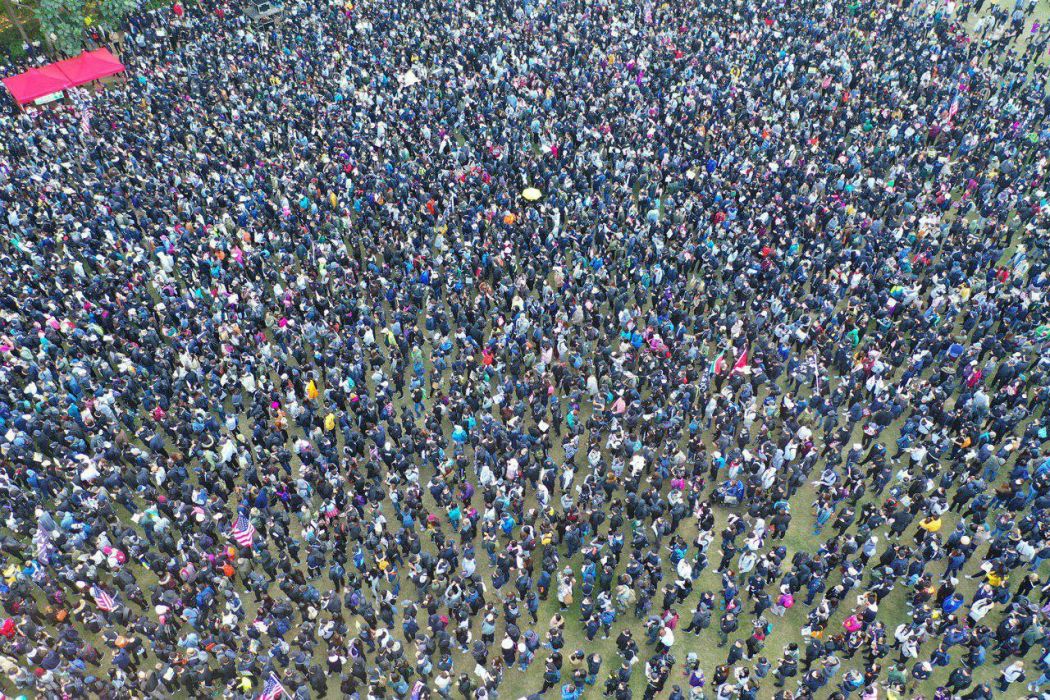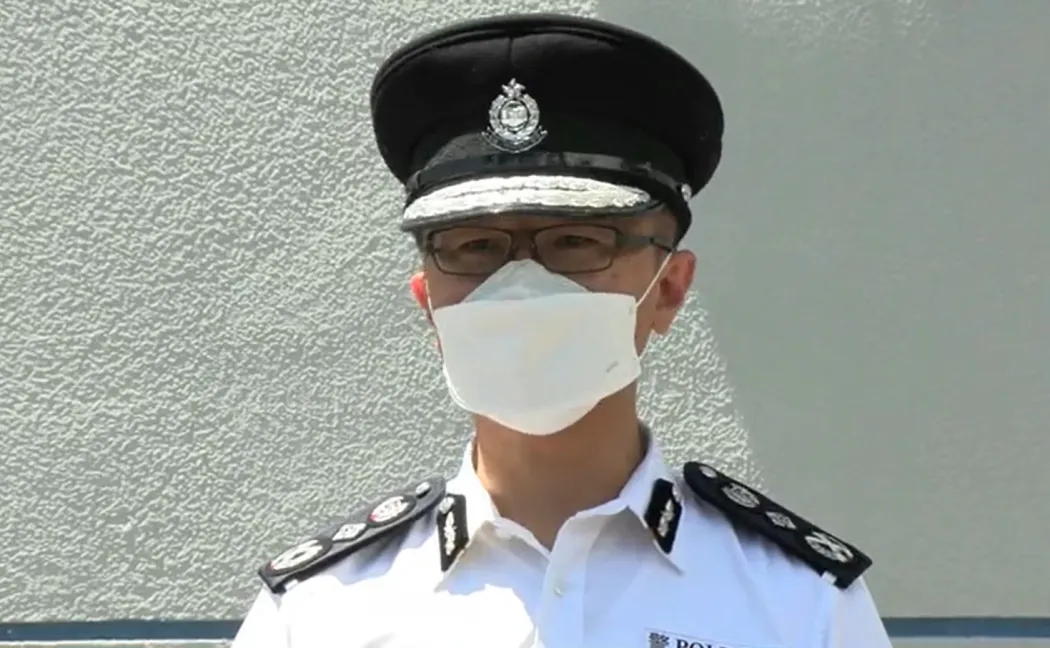Commissioner of Police Raymond Siu has said that the force “was ready to take action at anytime” against the protest coalition which has organised some of the biggest pro-democracy demonstrations in Hong Kong history.
In an interview with a state-backed paper on Friday, he said the Civil Human Rights Front (CHRF) might have violated the national security law for “organising a series of large-scale, illegal protests” in recent years. It is despite the fact that the coalition has not organised any rallies since the security law was enacted last June 30. Chief Executive Carrie Lam told the UN last June that the law would “have no retrospective effect.”

Citing an insider, the South China Morning Post claimed that the 19-year-old umbrella group would announce its disbandment by midnight Friday, days after Hong Kong’s largest teachers’ union – an key pillar of the city’s pro-democracy camp – dissolved on Tuesday. No official announcement had been made by Saturday, and the Post removed the claim. However, it said that front endorsed a decision to disband at a Friday meeting.
On Wednesday, a source familiar with the matter told HKFP that the group would discuss whether to disband at Friday’s meeting. According to NowTV and AM730, Chung Chung-fai – the front’s acting convenor – said the coalition will make an announcement about their future on Sunday.
The CHRF was founded in 2002 to coordinate protests by a network of pro-democracy and social issue advocacy groups in the city.

After holding its first rally in December that year against Article 23 of the Basic Law, the coalition became organiser of the city’s annual July 1 protests until the event was banned by the police for the first time last year, ostensibly over Covid-19 concerns.
Embattled coalition
The CHRF has faced increasing scrutiny from the government and pro-Beijing camp since the 2019 anti-extradition bill protests and unrest.
While it always sought police approval when planning demonstrations, and has never held protests that did not receive a police-issued “letter of no objection,” it was accused of facilitating violent post-demonstration clashes between protestors and police after several approved 2019 demonstrations ended.
The group has also seen its leaders remanded in custody or imprisoned. Its convenor Figo Chan was jailed for 18 months over a banned protest on China National Day in 2019.

The protest group did not organise this year’s protest on the 24th anniversary of Hong Kong’s handover, citing administrative difficulties and the city’s political environment.
The CHRF also saw a number of its member groups quitting after the Chinese-language Singaporean newspaper Lianhe Zhaobao reported in March that the group was the subject of a national security investigation.
Among those who have left since were the Democratic Party, the Civic Party, and the now-defunct Hong Kong Professional Teachers’ Union.
The coalition had around eight remaining members at the time of its disbandment, including the organiser of the annual Tiananmen Massacre vigil, the Hong Kong Alliance, League of Social Democrats, and the Hong Kong Confederation of Trade Unions.
Police action
In an interview with state-owned Ta Kung Pao, Siu said that while some of the leaders of the organisation were already jailed over illegal assembly charges, he “would not rule out that the police will continue to investigate and prosecute” core members of CHRF.

“If any organisations or anyone was breaking the law, we won’t wait until this moment to look at evidence or take action, we will already have gathered relevant evidence,” said Siu. “So if anyone is violating the law, don’t think that you can get away with it.”
In April, the police requested that the organisation explain why it did not re-register as a society under the Societies Ordinance, after CHRF cancelled its registration in 2006.
The front was also asked to submit information related to its operations, including a list of protests and rallies it had held since September 2006, its sources of income and expenditure, as well as the bank account it used for receiving funding.
The protest coalition refused to comply with the police request in May, and said in a letter to the police that “government departments including the police have worked with CHRF, they have never requested CHRF to register as a society, and have never warned or questioned that the CHRF was an illegal group.”
“During a hearing before the Appeal Board on Public Meetings and Processions, police representatives even complimented CHRF as ‘a big brand’ which ‘cooperated very well’ with the force over marches and assemblies,” the letter read.
Additional reporting: Tom Grundy.
Support HKFP | Policies & Ethics | Error/typo? | Contact Us | Newsletter | Transparency & Annual Report | Apps
Help safeguard press freedom & keep HKFP free for all readers by supporting our team

LATEST FROM HKFP
HKFP has an impartial stance, transparent funding, and balanced coverage guided by an Ethics Code and Corrections Policy.
Support press freedom & help us surpass 1,000 monthly Patrons: 100% independent, governed by an ethics code & not-for-profit.










